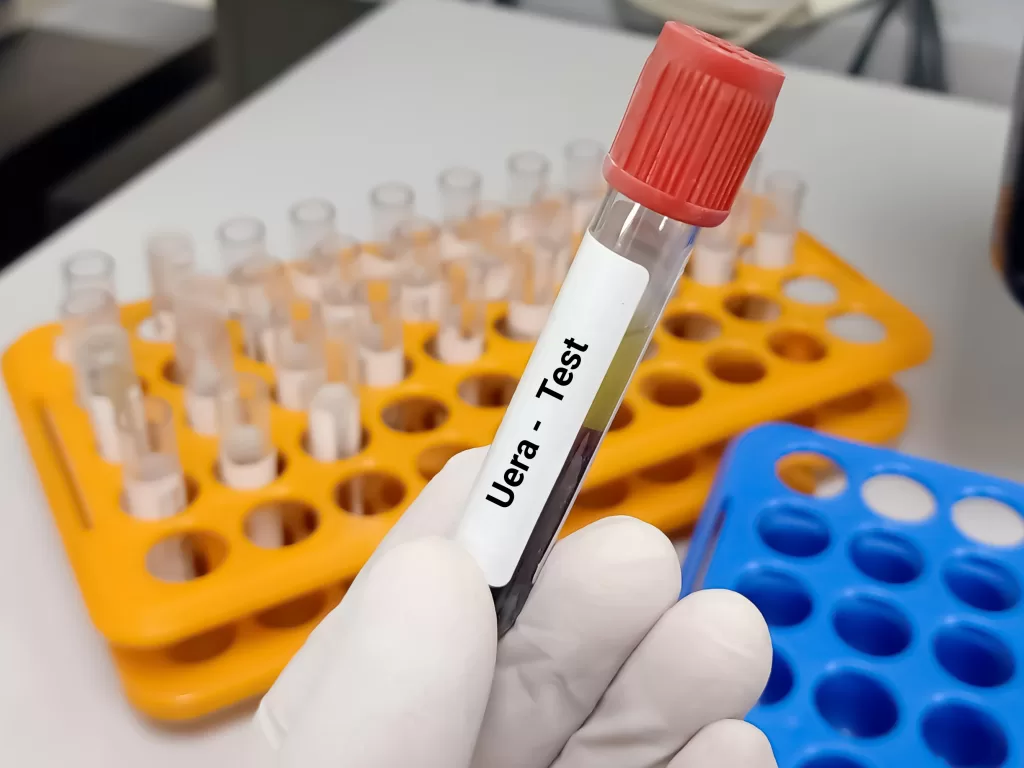What is Blood Urea Nitrogen
Blood urea nitrogen (BUN) is a waste product that is created when the body breaks down protein. It is mainly excreted in urine but can also be found in blood. Knowing your BUN levels can provide important insight into your overall health and can help determine if something has gone wrong with your kidneys or other organs. This article will explain what blood urea nitrogen is, how it’s measured, and what high or low results can mean.

What is BUN?
Blood urea nitrogen (BUN) is a helpful marker that reflects the amount of nitrogen in your blood. It’s frequently used to measure kidney function and check for dehydration or other complications from serious illness. BUN is a type of waste product created when proteins are broken down by the body, usually through digestion. The kidneys then filter out this waste and remove it from the bloodstream via urine.
Typically, doctors will order a BUN test in addition to another lab test known as creatinine. This combination is often used as an estimate of kidney function, since creatinine levels tend to remain stable while BUN levels can be affected by other factors such as diet and hydration. A high BUN reading can indicate dehydration or impaired kidney function, while low readings suggest that the kidneys are working properly.
Causes of Elevated BUN
The blood urea nitrogen (BUN) is an important indicator of kidney function. If you’ve recently had your BUN checked and it came back higher than normal, it’s important to know why. Elevated BUN can be the result of several different causes, though most are linked to problems with the kidneys.
Kidney conditions such as acute or chronic renal failure, urinary tract obstruction, or dehydration can lead to elevated BUN levels in the blood. Additionally, certain medications like nonsteroidal anti-inflammatory drugs (NSAIDs) may also increase BUN levels in those with already compromised kidney function. Dehydration can cause a rise in BUN numbers because when there’s less fluid being processed by the kidneys, waste accumulates faster and is more concentrated thus resulting in higher values of BUN found in the bloodstream.
Symptoms of High BUN
Having your blood urea nitrogen (BUN) levels tested is an important part of diagnosing and monitoring kidney health. It’s important to know what the symptoms are in order to take steps towards getting any necessary treatment.
High BUN levels can cause symptoms such as fatigue, difficulty concentrating, shortness of breath, frequent urination and reduced appetite. Swelling or puffiness around the eyes and face is also common with high BUN levels. If you experience any of these symptoms or have any other concerns about your kidney health, it’s important to seek medical advice right away.
If left untreated for too long, high BUN can lead to serious complications including stroke or heart attack due to fluid buildup in your body.
Diagnosis & Treatment
Are you concerned about your high blood urea nitrogen levels? Having an elevated BUN can be a sign of serious health issues. The good news is, there are treatments available to help bring BUN levels back to normal.
If you have been diagnosed with a high BUN level, it’s important to get treatment right away. An elevated BUN should not be taken lightly. Your doctor may order tests like a urine sample or X-rays to determine the underlying cause of your high BUN level. Depending on the results and your overall health, they will come up with a treatment plan that is best for you.
Treatment options may include lifestyle changes such as reducing salt intake and limiting alcohol consumption. Medications like diuretics and ACE inhibitors, or dialysis if necessary.
Diet & Lifestyle Changes
If you’re concerned about your blood urea nitrogen levels being too high, making some diet and lifestyle changes could help. It’s important to be aware of what you’re eating and how much physical activity you’re doing.
Eating a balanced diet with plenty of fruits, vegetables, whole grains and lean proteins is key for keeping BUN levels in check. Cutting back on processed foods that are full of sodium and sugar can also help lower BUN numbers. Getting enough fluids each day is another way to keep the kidneys functioning properly. Remember – at least 8 glasses of water should do the trick!
In addition to dietary changes, adding more exercise into your daily routine can have a positive effect on BUN levels.
Final Thoughts
High BUN levels can have serious implications for your health. If you’re experiencing any of the symptoms associated with high BUN, it’s important to get checked out by a doctor right away. Taking steps to reduce your BUN level can help protect and improve your overall health. So talk to your doctor about what lifestyle changes you can make. Above all else, remember that having a good understanding of your body and its needs is the best way to stay healthy.







2 Comments
Charity
I had no clue what this was to begin with so I learned a ton from this post. Thanks so much for sharing!
Beth
I didn’t know what it was either. My son had bloodwork done and I started researching!